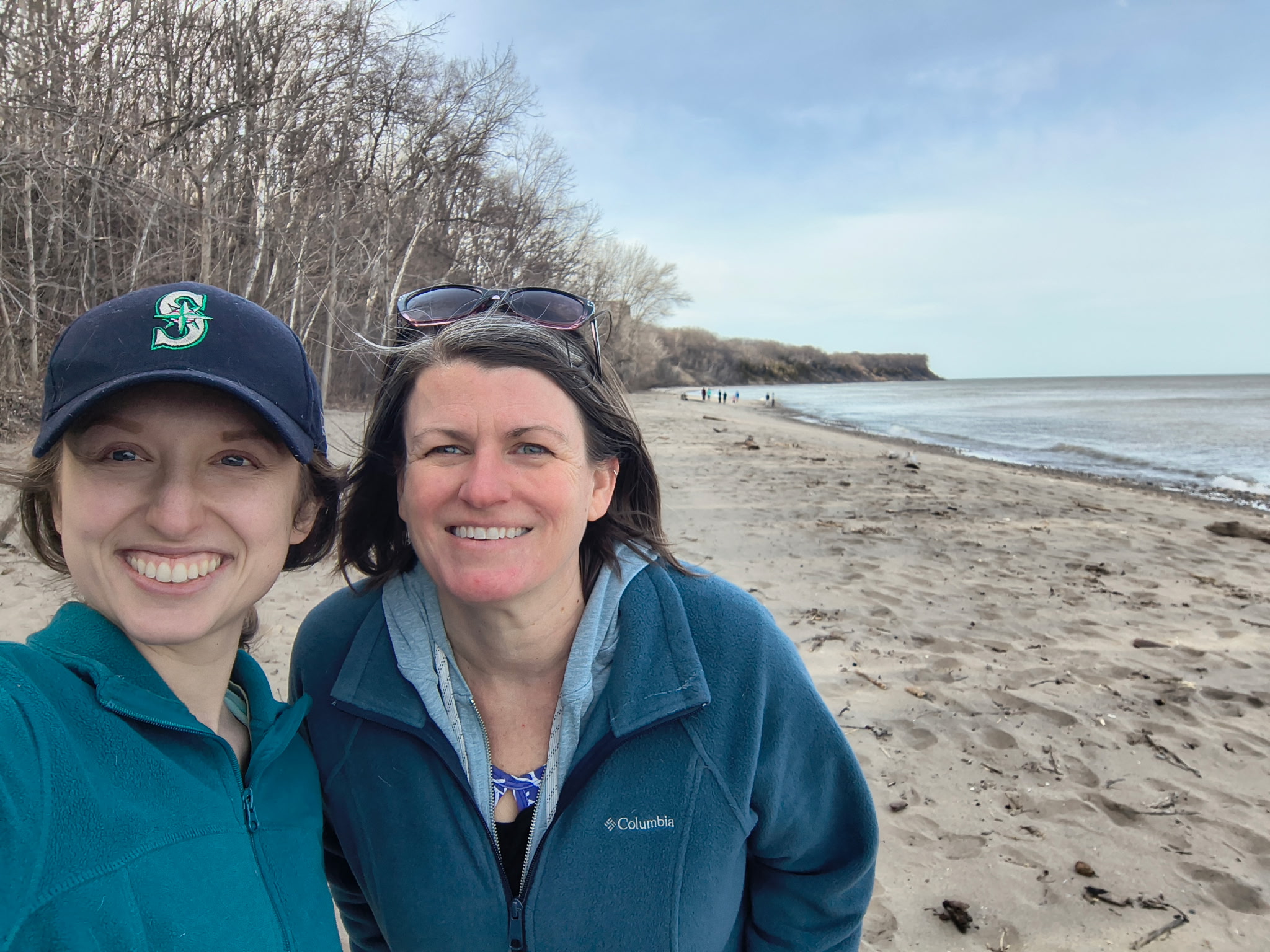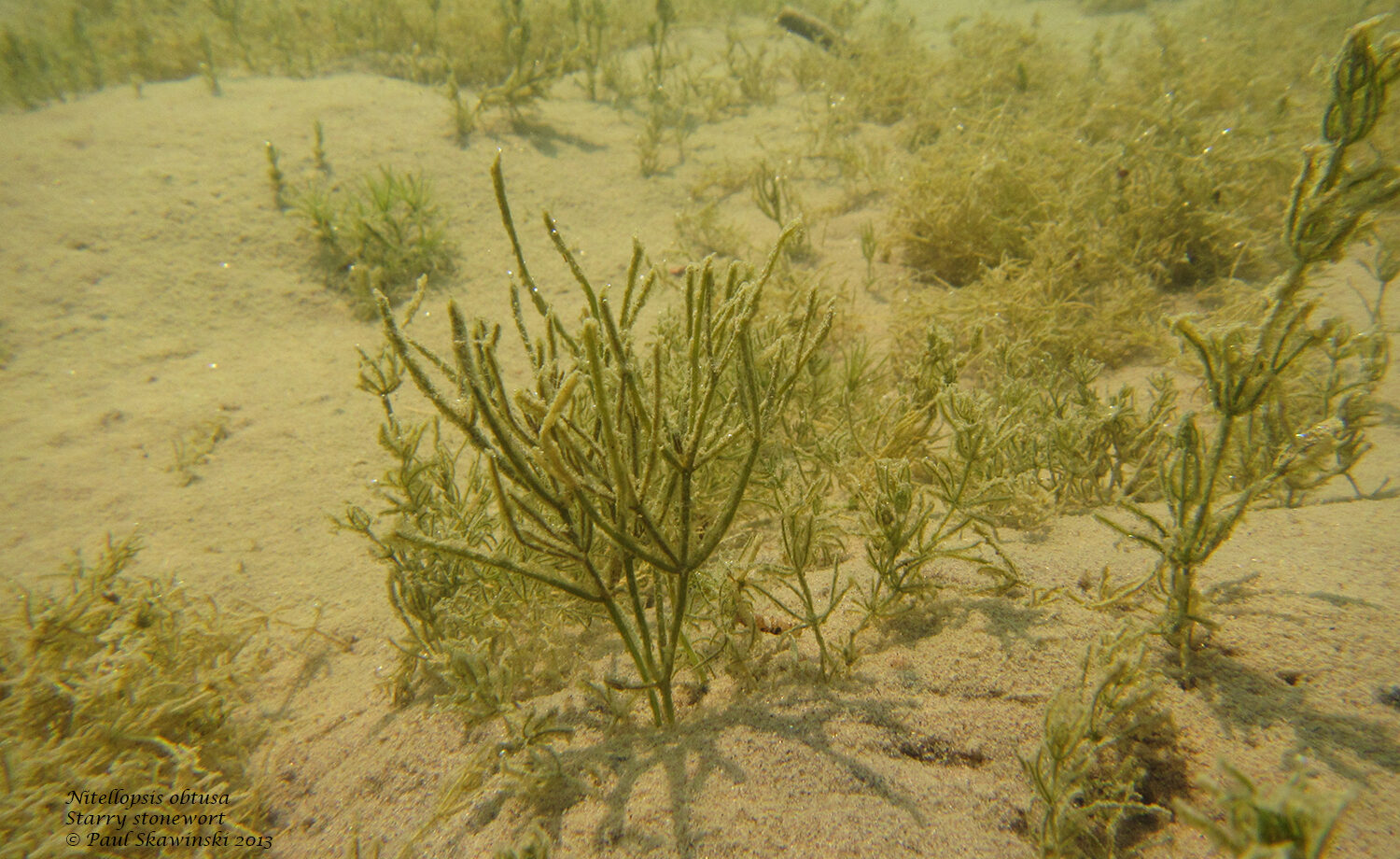Spending 20 years in the rain garden-dotted field of stormwater engineering has taught Carrie Bristoll-Groll a long list of things, but the biggest one is probably this: There are no easy solutions to one of the biggest issues facing major cities on the Great Lakes’ coastline.
It’s that big-picture view that makes Bristoll-Groll, an engineer who served on the first stormwater units in two different Wisconsin cities—Milwaukee and Brookfield—a valuable new addition to Wisconsin Sea Grant’s 15-member advisory council. Bristoll-Groll’s term officially began in September.
Bristoll-Groll’s interest in stormwater began after she graduated from UW-Milwaukee in 1994 with a degree in civil engineering–with a water resources emphasis, naturally—but her father, a geophysicist who owned a groundwater/soil remediation firm in the 1980s and 90s, provided the initial spark much earlier.
“I have always been an outdoorsy person, loving fishing, hunting, kayaking, swimming–I felt drawn to water,” she said. “I had the desire to use my love for water and my father’s example of doing something for the environment, to form my future work.”
That work has included some impressive groundbreaking initiatives. Bristoll-Groll was part of the team that established the first MS4 permit ever issued to a Wisconsin municipality. (The MS4 is the Environmental Protection Agency permit that governs stormwater discharge through municipal separate storm sewer systems.)
When floods ravaged Brookfield in consecutive years in 2007-2008, Bristoll-Groll saw a new opportunity. She became the city’s first stormwater engineer and spent the next four years convincing municipal managers that things like stream restoration efforts and infrastructure improvements could make a serious difference in minimizing urban flooding.
“The perspective and experience Carrie brings to our advisory board couldn’t be more critical, particularly at this point in time” said Jim Hurley, Wisconsin Sea Grant’s executive director. “Runoff and beach quality issues are becoming ever more important in our list of research priorities, and she’s poised to help us address them.”
In 2002, Bristoll-Groll used the experience she’d built up to launch her own Milwaukee-based firm, Stormwater Solutions Engineering (SSE). As a licensed Professional Engineer and a Certified Floodplain Manager, Bristoll-Groll and SSE have accomplished much in the last decade-plus, including designing hydraulic analysis and full drainage systems to improve Milwaukee’s water quality and quantity. Bristoll-Groll is proud that both projects feature a heavy dose of green infrastructure—think porous pavements, rain gardens and biofiltration systems.
“I launched SSE in the hopes of helping small cities develop wisely, being mindful of saving water quality in their wonderful streams, while not flooding those around them,” she explained.
She’s also been heavily involved in efforts to improve and remediate Milwaukee’s beaches, including Bradford Beach, now roundly considered a huge beach-improvement success story, and the significantly more troubled South Shore Beach, which is only now begun to receive attention. Wisconsin Sea Grant has supported both projects through funded research and sustained outreach efforts.
SSE relocated to Milwaukee’s Global Water Center last year, putting Bristoll-Groll at the flashpoint of the city’s water quality improvement efforts.
She knows it’s exactly where she needs to be.
“The biggest issue for cities has been educating the public or the users of the infrastructure,” said Bristoll-Groll. “Each resident in a community can play such an important role in water quality with their everyday actions, but getting that word out and having people really understand it isn’t easy.”
In a recent editorial published in the Milwaukee Journal-Sentinel, Bristoll-Groll laid out a list of actions average citizens can take to improve their city’s water, from choosing to wash their cars on their lawns rather than their driveways to avoiding feeding birds at local beaches—droppings from gulls and geese are the biggest source of beach contamination.
Ultimately, Bristoll-Groll is hoping that lending her expertise to Wisconsin Sea Grant will expand her ability to communicate points like these.
“I’m looking forward to assisting in bridging the gap between Sea Grant and the public, for the slow but sure improvement to water quality–and also for my own knowledge and growth.” she said.





